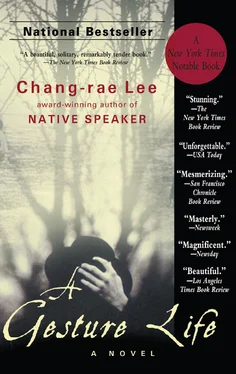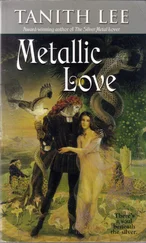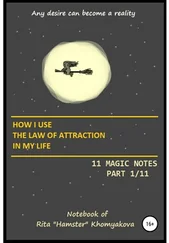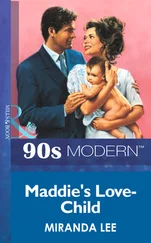“Perhaps,” I said.
“You bet, Doc.” She hugged me and, to my surprise, kissed me on the cheek. I told her I would stay at the hospital and keep Renny company, so that she might go home and shower and change her clothes. She hugged me again, and on leaving she cried out, as if for the whole ward to hear, “I know the truth, Doc, and so does everybody else.”
But the truth, I am beginning to think, is not something that can be so clear. Not in even the best circumstances. My friend, Mrs. Anne Hickey, wherever her good spirit may be, would have been among the first in line to testify to the “truth” about me. And yet what have I ever done for her, then or now? For another passing hour her boy, Patrick, lies in his solitary ship of a bed with the clear vinyl curtains drawn down around him, unvisited by me since that first night I stole into his room. It’s not the chance of seeing his father I dread, but the hard posture of Patrick’s stillness, the limpid quality of his skin, the clocklike winding-down. His is an old man’s demise, a chilly lessening, which is not right for a child (if any end is), who in the terrible waiting matures with a bittersweet swiftness, a quickened growing up in order to die.
And how further depleted might he appear with his mother now gone? I wonder if he even knows. If I were Mr. Hickey, I wouldn’t tell him, I couldn’t tell him, I’d say his mother had to take a trip, that her old friend across the ocean had died. I’d keep up a lie for as long as he could bear. I’d tell him whatever story he would hope for and believe. I would pool about him a whole history of her absence, too wide to cross and too deep to plumb: a dusky, flooding water in which he might forever gently tread.
I watched yesterday, as she was interred in one of the two small cemeteries in town. I waited outside the chapel in my car and then followed the procession along Church Street and then up past Boling Street and McKinley, to the large memorial grounds where many years ago I purchased my own plot, and one for Sunny as well. It was a day when one suddenly thinks one should prepare for such a thing, automatically and immediately. And it was an unusual decision as well, I realize, to buy one for such a little girl, but I wasn’t married or expecting to be — the other plot one buys being normally for a spouse — and I thought that it would be something like insurance, that we would always have a place for ourselves in the end, which no one could encroach or buy back or take away. But I never told her about it, feeling it was morbid; and then later, when we were having so many difficulties in our relationship, it seemed inappropriate to mention, too easy for her to misinterpret or misunderstand.
Once there I parked just inside the entrance and let the hearse and the long line of cars wend their way to the burial plot; I didn’t want Mr. Hickey to have to see me or acknowledge me or have to consider my presence in any way, and so I walked slowly toward the site, keeping an eye on him so that I might turn or step away whenever he looked up from the ground. Of course he would have noticed me immediately, had he gazed about. But he didn’t. In the warm, slanting light of the autumn morning he appeared still quite pale, moon-faced, his dark suit rumpled at the armpits and shoulders, one collar point lifting. His son was not there, of course, and so Mr. Hickey appeared that much more alone, standing as he was some steps away from the other family mourners, upright in an almost military style, his feet set apart, his hands clasped behind him. He wasn’t angry-looking, as I selfishly expected; he was bewildered, as everyone there was, though his body seemed not to wish to know it, not bent over and miserable but unmoving, completely still.
The minister was speaking in a broad, calling tone, and though I couldn’t hear what he was saying, I felt sure from the waves of sound that his sermon was deeply and earnestly uttered and thus worthy of Anne Hickey, who was nothing but kind and straightforward and estimably ardent, the sort of woman I might wish for if ever I would enjoy the company of someone again, the sort of woman Mary Burns was to the core and that I’d always hoped Sunny would someday become, and perhaps is now.
The minister ended with a long prayer, and then he motioned to the undertaker and his assistants (they were no doubt his sons, from the facial resemblance) to lower the casket into the ground. He began speaking again, perhaps a final consecration, when Mr. Hickey broke from the rank and began walking away, down the hill, in my general direction. This is not acceptable, his body was saying, This is not something for me. Everyone turned to watch him, the minister and others feebly waving for him to come back. Then Mr. Hickey began to jog, then run, almost coming in a sprint down the grassy incline, his suit jacket still buttoned. He passed by quickly, and he must have noticed me, for he glanced back over his shoulder, and it was then his footing slipped on the dry sod, causing him to fall in an awkward, tumbling heap. Several mourners had rushed down to him, and when I reached him I could see that his leg was traumatically fractured at mid-calf, the splintered tip of the bone poking out through the bloody material. He was sitting up and gripping his thigh, puffing furiously through his teeth, and I thought he would soon pass out. An older man, whom I recognized as a retired physician from the county hospital, was urging him to lie back, to hold still so he could make certain the main artery hadn’t been severed, but Mr. Hickey saw me then and tried to rise, reaching out toward me, moaning, “Don’t anyone touch me! Don’t touch me. I want him to help me….”
Then he lost consciousness, and everyone was staring, wondering if I had even been part of the gathering, or if Mr. Hickey had momentarily lost his mind. They seemed to pause, so that I might actually do something, but the retired doctor had been regarding me most skeptically and then purposefully set about his business, asking someone else to run and call for an ambulance.
Under sedation, Mr. Hickey was transported to this very hospital, and one of the best orthopedic surgeons in the area, a Dr. Peter Milhoos, set the leg. I had followed in my car and informed the nurse at the admitting desk that I would cover all the expenses of his stay, writing a large check as a deposit. She thought it suspicious, but on calling the billing office she mentioned my name and Ryka Murnow remembered me and it was approved. I waited until the procedure was finished, and instead of going home I felt I should stay close by. Sometime late in the night, with a key Liv had given me, I came here to rest a moment and somehow fell asleep until morning in Renny’s wide, soft-seated leather chair.
I had dreams, many of them, all pressed upon one another like bits of photographs in a child’s scrapbook. And they were vivid to the extent that although I don’t remember their particular images or events — for I very rarely do — I still even now have the pulsing feeling in my head of near-exhaustion from the force of what must have been their great number and intensity. What is unsettling is that for so long a time my days and years flowed by with an estimable grace, the most apparent processionals of conduct and commerce, and yet in the last weeks the gradual downflow has loosed into a sheer cascade, an avalanching force that has caught me deep and sure.
And I think that like Mr. Hickey, I can hardly bear to be a witness anymore. I couldn’t watch for long as his wife’s casket was slowly cranked down into the earth, the ending-ness and rank finality brutally apparent, the nothing-more of that lowering. It wasn’t only poor Anne Hickey I felt going down into the ground, but her husband, and Patrick, and the mourners who stood there decently and stiffly over the fresh hole (if preternaturally leaning back), and then myself as well, who is afraid not of death but of the death of yet another living chance through whom I might reconsider, and duly reckon.
Читать дальше











![William Frith - John Leech, His Life and Work. Vol. 1 [of 2]](/books/747171/william-frith-john-leech-his-life-and-work-vol-thumb.webp)
![William Frith - John Leech, His Life and Work, Vol. 2 [of 2]](/books/748201/william-frith-john-leech-his-life-and-work-vol-thumb.webp)